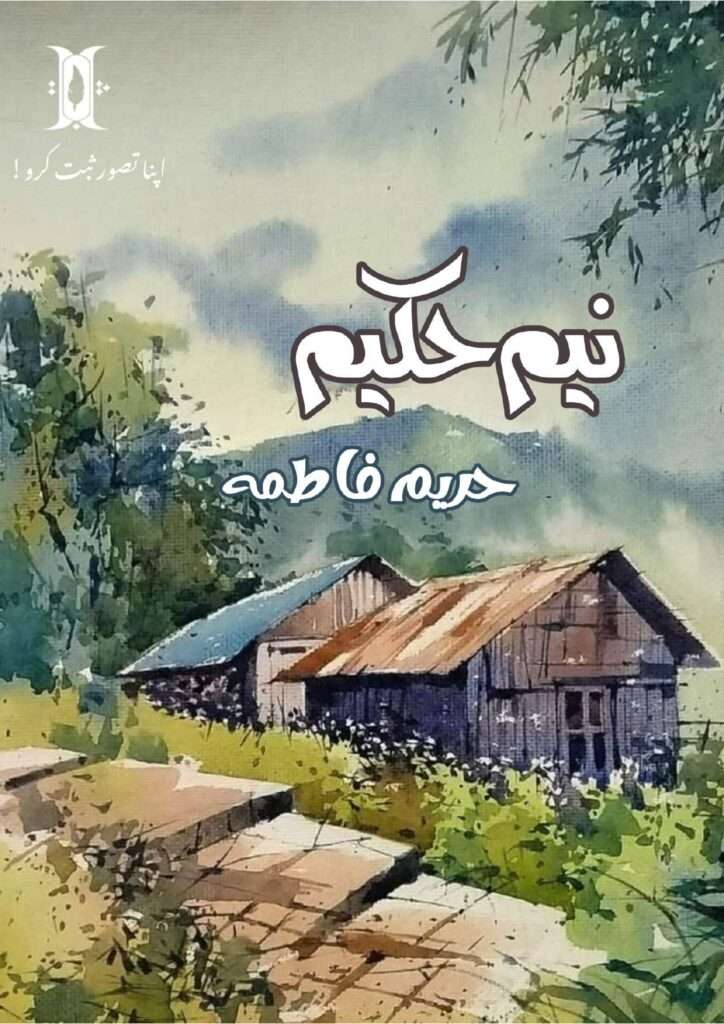“نیم حکیم” ایک دیہی کہانی ہے جس میں جہالت، فریب اور محبت آپس میں جڑی نظر آتی ہے۔ گاؤں کے لوگوں کی سادہ مزاجی ایک جعلی حکیم کے ہاتھوں استحصال کا شکار ہوتی ہے، مگر علم، سچائی اور جذبہ خدمت بالآخر اندھیروں کو شکست دیتے ہیں۔
“Neem Hakeem” is not just a rural tale—it is a timeless Urdu afsana that captures the clash between ignorance, deception, and love in the heart of a village. This short story belongs to the long tradition of social commentary-based Urdu afsana, where the ordinary lives of villagers reveal extraordinary truths about society. In a village where simplicity and innocence define the people, a fraudulent healer, the so-called “Neem Hakeem”, exploits their trust. Yet, through the resilience of truth, knowledge, and the pure spirit of service, the forces of light ultimately overcome the shadows of lies and manipulation.
At its core, “Neem Hakeem” is deeply social commentary-based. It critiques the dangers of ignorance, blind trust, and exploitation by those who hide behind masks of authority. Readers who search for social commentary-based Urdu afsana, rural life short stories, morality tales, and village-based Urdu fiction will immediately find relevance in this narrative. Like classic stories by Manto, Bedi, and Ahmed Nadeem Qasmi, it highlights how exploitation thrives where education is absent and how truth eventually liberates.
Beyond social critique, “Neem Hakeem” also holds the essence of romance-based Urdu afsana. Hidden within the struggle against deception is the tenderness of love—a love that blossoms despite hardship. In many ways, the story echoes romantic suspense Urdu afsana, where emotions exist in the shadow of danger, and hope struggles to survive in an atmosphere poisoned by lies. Readers of romance-based Urdu short stories, forbidden love tales, enemies to lovers arcs, and romantic suspense will find that this rural story resonates with universal emotions.
The tale also borrows subtle tones from fairy tale-inspired Urdu afsana. The village itself becomes almost mythical—a place where innocence can be both a blessing and a curse. The “false healer” is like a wicked magician, casting a spell of lies over the people. Yet, just as in a fairy tale, truth and service act as weapons of light to shatter the illusion. Readers of fairy tale Urdu afsana, allegorical stories, magical realism, and myth-inspired short stories will see parallels between folklore and this narrative.
Moreover, the battle between ignorance and knowledge connects the story to the spirit of army-based Urdu afsana, though indirectly. Just as soldiers on the battlefield face deception, betrayal, and sacrifice, the villagers here fight their own war—a war not with weapons, but with intellect, resilience, and the strength of unity. This makes “Neem Hakeem” relatable to those who admire army-based Urdu stories, resilience arcs, sacrifice-based narratives, and survival tropes.
The themes of “Neem Hakeem” also touch upon tragic love, redemption, betrayal, survival against odds, moral justice, and community resilience. These are recurring tropes in Urdu short stories, making the afsana timeless and relatable across generations.
Ultimately, “Neem Hakeem” is more than just a village story. It is a mirror of society, exposing the dangers of ignorance while celebrating the triumph of truth, love, and knowledge. It is a romance-based, social commentary-based, fairy tale-inspired, romantic suspense-driven Urdu afsana that carries lessons for every reader. Those who seek village tales, morality-based afsana, romance Urdu short stories, enemies to lovers arcs, and stories of resilience and redemption will find themselves deeply moved by its message.


1 thought on “Neem Hakim by Hareem Fatima”
Nice novel♥️✨️